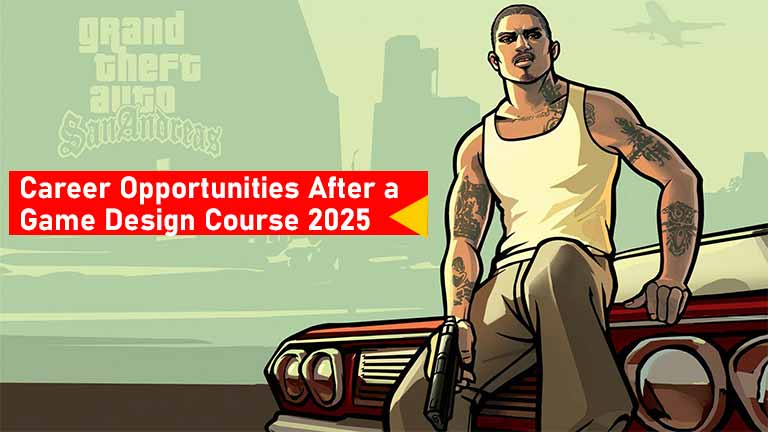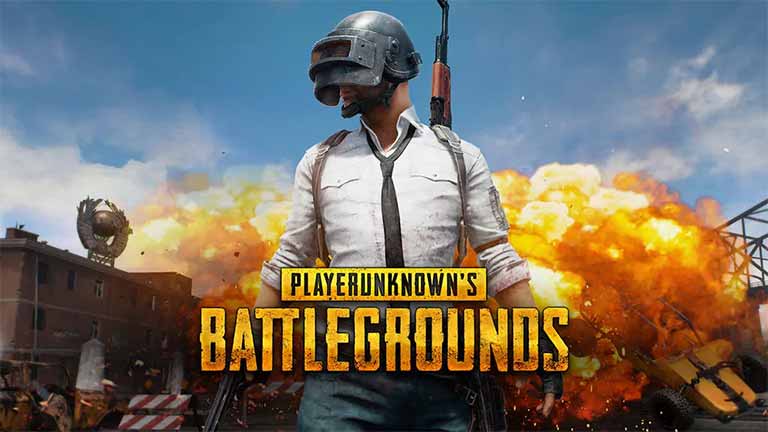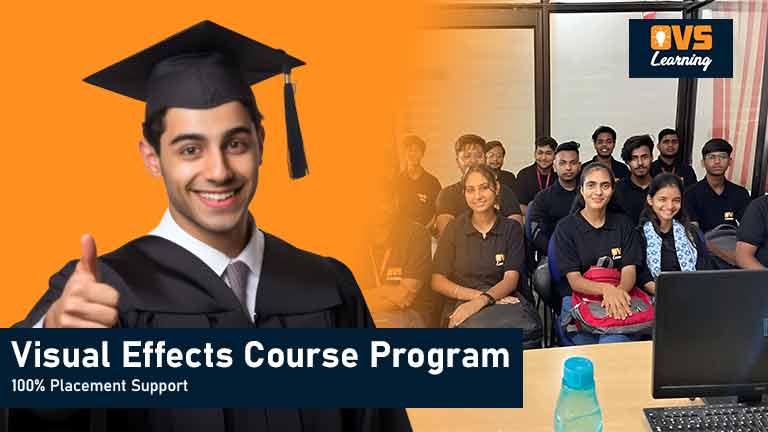
What kind of jobs can I get after a game design course?
You’ve just finished a game design course—or maybe you’re about to jump into one (Game Designing Field). And the big question hits: now what? What kind of jobs are actually out there? And how do you land one?
Let me be straight with you. After writing about the design and tech industry for over 15 years, I can confidently say this: the gaming industry is booming. In India. Globally. Everywhere.
And that means career opportunities after a game design course are growing faster than you think.

Gaming Designing Industry Snapshot
India’s gaming industry is expected to hit $8.6 billion by 2027. Wild, right? With more than 800 million mobile gamers or desktop gaming and an increasing number of studios in future, the demand for skilled designers, developers, and artists has skyrocketed so are you wasting your time learn this skill and become professional gamer designer.
Globally in Game designing, big players like Sony, Nintendo, Epic, and Tencent are hiring creative minds in 2025 and in future. But so are Indian companies like Nazara, Gametion, and Octro.
In short: there’s a solid need for people with game design skills. And if you’ve just completed a course, your timing couldn’t be better. The career opportunities after a game design course are very real.
Types of Job Roles in Game Design (What You Can Actually Do)
So you finished your course… or thinking to start career one (Gaming Designing)? Now you’re asking: “What kind of jobs will I even get after this?”
Let’s break it down like a level map. Simple, real, no fluff.

🎮 Game Designer
This is the core role. The mastermind behind how the game plays.
You decide how the player jumps, fights, wins—or even loses.
You build the rules. Then break them to make it fun.
Skills Needed: Storytelling. Systems thinking. Level logic. Player psychology.
Career opportunities after a game design course? Endless here.
AAA studios? Check. Indie mobile studios? Yup.
Even solo game devs need this brain.
🧱 Level Designer
You’re literally building the game world.
The paths, the puzzles, that secret door behind a waterfall? That’s you.
You guide the player. Without ever saying a word. Just with environment.
Skills: 3D space thinking. Puzzle logic. Player flow.
Hot spot for career opportunities after a game design course—especially for folks who love architecture and games.
👨💻 Game Developer (Coder/Programmer)
No game without code, right? You build the engine.
You bring mechanics to life. Combat systems. Camera movement. Menu logic.
If you love solving bugs more than swatting them, this is your thing.
Skills: Unity, Unreal, C#, C++.
Pro tip: Career opportunities after a game design course shoot up if you can code and think like a designer.
🎨 Game Artist / 3D Modeler
What’s a game without killer visuals? That sword, the dragon, that epic ruined temple—some artist made it.
You model, sculpt, texture. You breathe life into pixels.
Skills: Maya. Blender. ZBrush. Substance Painter.
Career opportunities after a game design course in art? HUGE—if your portfolio looks 🔥.

🧭 UI/UX Designer for Games
The stuff players don’t notice… unless it’s bad. You build menus, health bars, inventory icons, even map markers.
You decide how info is shown. Cleanly. Quickly.
Skills: Photoshop, Illustrator, Figma, Prototyping tools.
Career opportunities after a game design course here? Perfect for design nerds who love detail.
🕵️♂️ Game Tester (QA – Quality Analyst)
Sounds chill? It’s not. You’re the last line before the player sees the game.
You test the game. Push it till it breaks. Then explain why it broke.
This is where most careers begin.
Skills: Sharp eyes. Gameplay logic. Documentation.
Career opportunities after a game design course? It’s often the first door to the studio world.
🔀 Animator
Characters don’t just stand still. They move. Run. Laugh. Fight. Cry. You give that motion soul.
From idle loops to massive boss intros—you animate everything.
Skills: Maya. Spine. Blender. Adobe Animate.
After a game design course, this role’s perfect if you love storytelling in movement.
📲 Mobile Game Designer
Short, sweet, addictive games. Fast level loops. In-app coins.
You make things people can’t stop playing on the bus.
Skills: UX for small screens. Casual gameplay flow. Monetization hacks.
Career opportunities after a game design course? Mobile market is booming. Big time.
🌍 AR/VR Game Designer
This is the future. Headsets, hand tracking, full-immersion games.
You build experiences, not just levels.
Skills: Unity XR Toolkit. Oculus SDK. Immersive storytelling.
The world of AR/VR is expanding fast—and career opportunities after a game design course in this space are sky-high.

Freelance & in India Opportunities
Not into that full-time office grind yet? Or maybe you just want to build something of your own? That’s totally cool. One of the most exciting career opportunities after a game design course is going solo—freelancing or becoming an indie game dev. And yes, it’s more real than ever now.
Imagine this—laptop open, coffee on the side, hoodie on, headphones blasting game soundtracks. You’re not stuck in meetings. You’re actually building your dream game. That idea you’ve been sketching in your notebook? Yeah, that can go live.
You don’t need a fancy & stylish setup in your home or deep pockets. in Game design Platforms like itch.io, Steam, and Google Play Store let you upload your game straight to players mean professional game designer. No middlemen. No waiting. Just build something small, fun, weird—even a bit buggy at first—and put it out there. People notice originality. Some solo devs have created viral games this way. No big studio, just big ideas.
Tools? They’re not gonna cost you a fortune either. Godot. Unity. Blender. All free. All powerful. All you need is patience and a bit of YouTube or course learning. Trust us, the tools you’ve already used during your course? That’s more than enough to start.
Now, here’s some real talk. Many successful indie developers started exactly like this. One person. One laptop. And a dream game that somehow clicked with people. It’s not a myth. It’s happening every day. These are legit career opportunities after a game design course, not just side projects.
Want more reach? Try game jams like Pubg, GTA, Ludum Dare, VFX games or Global Game Jam. They’re wild. You get a theme, a time limit, and boom—you build a game fast. It’s intense but fun. And it gets your name out there. Employers, other devs, even streamers check those out.
Bottom line? Freelancing or going indie isn’t just a backup plan. It’s a real path. One where you call the shots, pick your projects, and maybe—even go viral. Career opportunities after a game design course don’t only live inside big studios. Sometimes, they’re hidden in that half-finished prototype sitting on your desktop.
So yeah… don’t wait. Build. Upload. Repeat. 🎮
Top Hiring Companies in India
Here’s where your inbox might start buzzing:
- Nazara Technologies
- Gametion (makers of Ludo King)
- Octro
- Ubisoft India
- Zynga India
- MPL (Mobile Premier League)
- EdTechs like BYJU’S, WhiteHat Jr.
Plenty of career opportunities after a game design course in these top names.

Game Designer Average Salaries (India-Focused) in 2025
| Job Role | Starting Salary | Experienced |
|---|---|---|
| Game Designer | ₹3–5 LPA | ₹10+ LPA |
| Game Developer | ₹4–6 LPA | ₹12+ LPA |
| 3D Artist | ₹2.5–4.5 LPA | ₹8+ LPA |
| Game Tester (QA) | ₹2–3.5 LPA | ₹6+ LPA |
| UI/UX Designer in Game Design | ₹2.5–4 LPA | ₹8+ LPA |
How to Improve Your Chances of Getting Hired as a Game Designer
You want more career opportunities after a game design course in 2025? Then:
- Build a killer and creative portfolio (ArtStation, Behance, GitHub or instagram and linkdin)
- Apply for internships (Game designing) (even unpaid ones to start your career and become professional Game Designer)
- Join game jams (like Global Game Jam)
- Freelance (Upwork, Fiverr, GameDevMarket)
- Enroll in courses with strong placement (like OVS Learning, ICAT)
Soft Skills That Matter in Game Designing or Any Skills
Game design jobs aren’t just about tools. Studios want people who:
- Work well in teams
- Solve problems creatively
- Manage time well
- Communicate ideas clearly
Mastering these will open more career opportunities after a game design course.

Real Stories (Short)
“I joined a diploma course at OVS Learning and started freelancing while still studying. After a few small gigs, I got hired by a mobile studio in Ajmer as a junior game designer. Best part? I get paid to be creative.” – Ritika, 22, Game Designer
“I was into sketching characters and playing RPGs but had zero coding background. Took a 1-year game design diploma at OVS Learning. Learned tools like After Effects and Illustrator, made a small indie project during the course. That game helped me land an internship at a gaming startup in Delhi. Now I’m a 3D artist—still feels unreal sometimes.” – Kabir, 20, 3D Game Artist
“Honestly, I didn’t know what I wanted after 12th. Just knew I loved games and storytelling. Found a course at OVS Learning through Instagram. Learned level design, did a few game jams, and posted my work on ArtStation. Got spotted by a recruiter and now I’m working remotely with a small studio in Mumbai. Feels like turning my hobby into a real job.” – Aanya, 19, Level Designer
OVS Learning_ is a best institiute for animation and multimedia program with 100% Placement support.
🎯 Conclusion
So you did the course—or maybe you’re about to. And now you’re thinking… what next?
Here’s the truth. There are tons of career opportunities after a game design course. Like, seriously. It’s not just one straight road. It’s more like a big messy map full of side quests. You can go mobile. Or jump into AR/VR. Or dive into those indie projects that nobody believes in—until they blow up.
AAA companies? Yeah, they’re hiring too. Always hunting for fresh ideas and bold minds. But you don’t have to go there. You can freelance. Start small. Make something weird. Something yours.
But hey—this isn’t magic. You gotta build stuff. Try. Fail. Fix. Repeat. Keep your portfolio alive. Stay curious. Be obsessed, even.
Because this industry? It’s not slowing down. Not even close. Every day, someone’s making a game that wasn’t there yesterday. So why not you?
Just pick your path. Press start. And don’t stop playing. 🚀
🤔 FAQ: Career Opportunities After a Game Design Course
Q1. What are the best career opportunities after a game design course in India?
Plenty! You can become a Game Designer, Level Designer, Game Developer, 3D Artist, Animator, UI/UX Designer, or even a QA Tester. Mobile game studios, AR/VR startups, and indian devs are growing fast here in India. Just pick your style—and build from there.
Q2. Can I get a job after a game design course without coding skills?
Yes! Not every job in game design needs code. Roles like Game Artist, Level Designer, UI/UX Designer, and Animator don’t require hardcore programming language, Coding only use for game development not designing. But knowing a little helps. You might not code—but you’ll work with people who do.
Q3. How much can I earn after a game design course in India?
Freshers usually start with ₹3–5 LPA as Game Designers or Artists. Developers and skilled animators can earn ₹6 LPA or more. With experience, ₹10+ LPA isn’t rare—especially in big studios or overseas gigs.
Q4. Is freelancing a good option after game design course?
Absolutely. Many students start by freelancing on platforms like Fiverr, Upwork, or by uploading games on itch.io or Play Store. Indie devs often go viral—if the idea clicks, your career takes off. It’s risky in Game Designing, but exciting in 2025 and future.
Q5. Do I need a degree any university or colleges to become a game designer in India 2025?
Not really. A strong portfolio matters more than a degree. If you’ve done a solid game design course and can show your work, studios will notice. Skills > Certificates.
Q6. What tools should I learn to boost my game design career?
Depends on your role.
- Designers: Unity, Unreal, Figma
- Artists: Blender, Maya, Photoshop
- Developers: C#, C++, Unity, Godot
- Animators: Spine, Blender, After Effects
Start with free ones. Master what fits your style.
Q7. Are there career opportunities in mobile game design specifically?
Yes, big time! India’s mobile gaming market is huge. Casual games, hyper-casual, freemium models—they all need designers. Game balance, user flow, monetization—all part of it.
Q8. Can I work in AR/VR after a game design course?
Totally. If you learn tools like Unity XR, Oculus SDK, and focus on immersive design, AR/VR studios will love you. It’s futuristic, yes—but hiring is happening now.
Q9. Where can I build a portfolio for game design jobs?
Behance for design, ArtStation for game art, GitHub for code, and itch.io to publish games. Join game jams like Ludum Dare—they show you can build fast and think smart. Keep it real. Keep it playable.
Q10. Which companies hire game design students in India?
Top names include:
- Nazara Technologies
- Gametion
- Ubisoft India
- Zynga
- MPL
- BYJU’S (for educational games)
There are also dozens of small studios doing amazing work.
Q11. What soft skills are needed for a game design career?
- Creative thinking
- Teamwork
- Time management
- Communication
You’ll work with developers, artists, testers—so being a good teammate really helps.
Q12. Can I start my own game studio after a game design course?
Yes, you can! Start small—maybe a solo project or with friends. Build a few games, release them on Steam or Play Store, get feedback. Some of today’s big studios started this exact way.

Tag:become a game designer, career, game design, game design career, game design course, game design for beginners, game designer, game developer, game development, game development course, game development for beginners, game programming, how do i become a game designer, how i became a game developer, how to become a game developer, how to start a career as a game designer, india game development, what does a game designer do, what is a game designer



